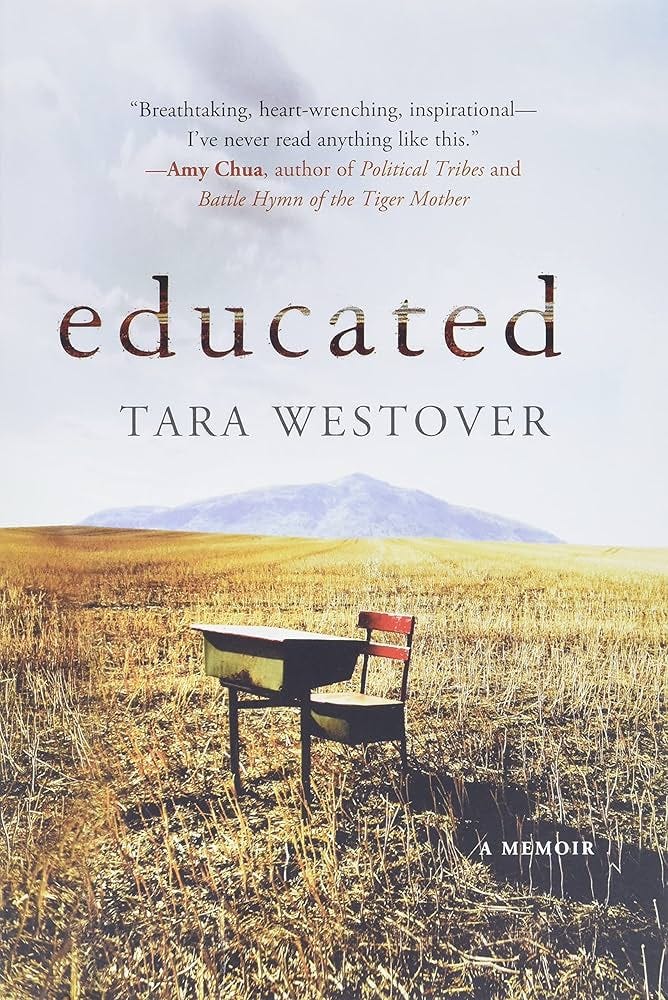Educated by Tara Westover
oh it's incredible alright...
Westover's first degree is in History, followed by a masters in Philosophy, and she has an interesting point to make: she's firmly aware that historians carry their own bias and blindspots, but that we receive these histories as neutral accountings of fact. But really, it's stories on top of stories. In this book, she presents her life. And what an incredible tale of a life! (incredible being a perfect word here) Incredible can mean extraordinary, but it can also mean impossible to believe. Sticking with the first definition, I was enthralled with the descriptions of family car accidents, severe burns and other near death scenarios- often times gasping aloud and crying "Oh no!" when I could see the inevitable end point. And if your family had survived so many statistically unsurvivable situations, and your family's wealth had only grown, why wouldn't your faith in your God be stronger as a result?
But Westover also addresses the second meaning of incredible in the final appendix of the book, A Note on the Text, where she admits memory can lie. And she also reveals something that could unlock the real purpose of her memoir: her decision to go no-contact with her father. Before she set down these stories of her family, it was her father's truths that were spread among siblings and uncles and aunts - stories that said she was mentally ill or possessed by the devil. This was a way to tell her own truth (was this the start of the 'my truth'/'your truth' discourse?) So there's a duality of need here: to justify her actions but also provide an olive branch for future reconciliation. She's a historian like all others - with her bias and blindspots - and her words will be absorbed by her audience as factual truths.
This is why Shawn, a brother presented as a tormentor, also gets tender memories. And why, often times, the memoir just leaves the reader asking more questions. It's never really explained why a family that never went to a doctor, much less a hospital, threw all their priors away when their daughter-in-law gave birth at 26 weeks, and they immediately took mother and baby to not one, but two hospitals. Then the baby needed numerous surgeries, so this family had to have a reckoning with their belief system. Where's that chapter? When Westover witnesses her mother take a stand against her father, and comforts her in her anguish, that chapter abruptly ends and is not referenced again. There's a weird, almost throwaway, mention of her taking a newly-conjured car from home because she was underpaid that summer. Where could such a sense of entitlement come from? When Westover abandons her faith, it seems a simplistic plot point: twice, she questions that if God had a purpose in one calamity (like Shawn falling on his head), what was God's purpose in the subsequent event (Shawn immediately hitting his head a second time)? Her faith just seems to fade without an interrogation of it's importance.
So where do I fall on the definition of incredible? It's very likely that she told forms of these stories to her Cambridge and Harvard peers and became a favourite dinner guest as the tales grew taller. She likely took a few writing courses and learned how to craft a satisfying tale. Likely some of the early chapters were homework assignments, verbatim. Likely she knows her own memories have altered with time and incentive, but it's equally likely she exaggerated, or even invented, the tender memories to achieve a balance. In the end she's honest about what she is, and how she defines it: an unreliable historian.


